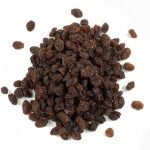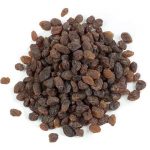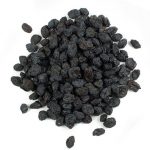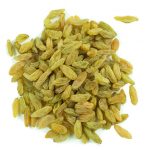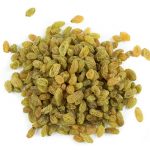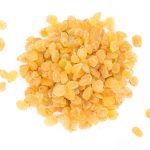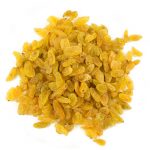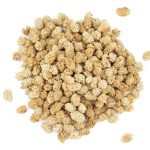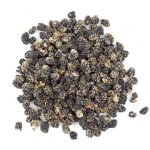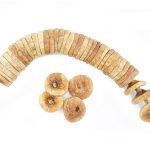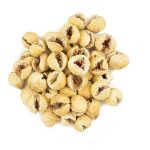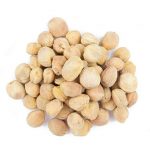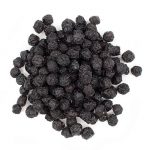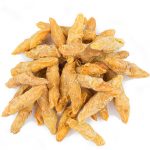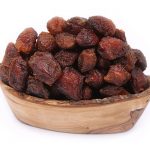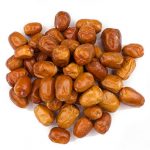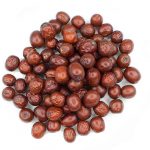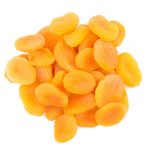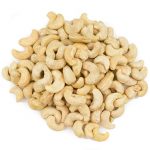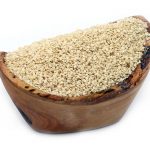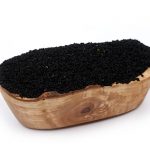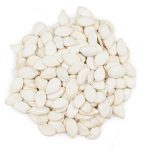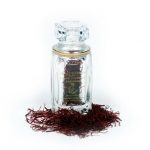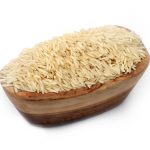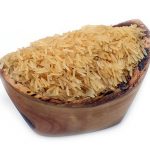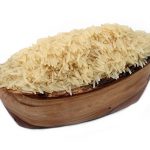Sesame Seeds
Sesame seeds are one of the oldest condiment known to men, and one of the first crops to be processed for oil. The have been mentioned in many myths of many regions spanning from Hindu to Assyrian myths as well as prehistoric Arabian myths. The usage of sesame seeds in cooking can be traced backed to ancient Egypt, and evidence of this can be seen in ancient paintings showing Sesame seeds added to bread for cooking.
Sesame seeds are used in various cuisines. In many Asian cultures, they are added as a main ingredient to dishes to provide a crunchy and delicate taste to the dishes. Sesame seeds are still being added on top of the bread in the Middle East as a form of delicacy and fashion, and they are one of the main ingredients in tahini, sesame seed paste, and sweets such as Halva. Sesame seeds are added to food because they provide a nutty and crunchy taste, and their small and bright texture seems to be almost invisible in the dishes.
Sesame seeds are believed to be originating from India, and then introduced to the Middle East, Asia, Africa and Europe. In the 17th century, sesame seeds were brought to the America through Africa. Now a days sesame seeds grows all around the world in tropical regions. At the moment, the largest commercial producers of sesame seeds are India, China and Mexico.
Naturizon provides Sesame seeds in bulk format to be used in Restaurants, bakeries, retail, and industrial processing facilities.
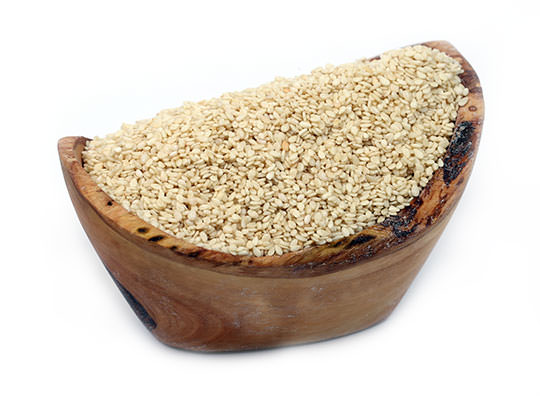
HEALTH BENEFIT
The popularity of sesame seeds throughout history was not just because of its exquisite taste and flavor, but rather its many health benefits.
Sesame seeds are a very good source of copper, calcium, magnesium, iron, manganese, phosphorus, vitamin B1, zinc, molybdenum, selenium, and dietary fiber. Sesamin and Sesamolin are two unique substances that are found in sesame seeds. These two unique substances are from a group of special fibers called Lignans, and it is believed that these substances can assist in lowering cholesterol. It is also believed that Sesamin can protect the liver from Oxidative damage.
SELECTION & STORAGE
Sesame seeds are generally available in prepackaged containers as well as bulk bins. Just as with any other food that you can purchase in the bulk section, make sure that the bins containing the sesame seeds are covered and that the store has a good product turnover to ensure maximal freshness.
Whether purchasing sesame seeds in bulk or in a packaged container, make sure there is no evidence of moisture. Additionally, since they have a high oil content and can become rancid, smell those in bulk bins to ensure that they smell fresh. Unhulled sesame seeds can be stored in an airtight container in a cool, dry, dark place. Once the seeds are hulled, they are more prone to rancidity, thus they should be stored in the refrigerator or freezer.
PREPARATION & SERVING METHOD
There are many ways in which sesame seeds can be used in food preparation, and the following are a few methods that we would recommend for you to try:
- Adding sesame seeds on into the batter of homemade bread, muffins, or cookies. They can also be used as decorating garments on the top of the dishes
- Sprinkle sesame seeds onto steamed broccoli, and to get an extra kick, add some lemon juice
- Healthy sauté chicken with sesame seeds,soy sauce, garlic, ginger and your favorite vegetables for a healthy, but quick, Asian-inspired dinner.
SAFETY PROFILE
Sesame seeds are considered to be safe to be taken by mouth with food, unless you know that you are allergic to it.
For individuals with blood pressure problems and diabetes, it is recommended to speak with a medical professional to consume sesame seeds, and the recommended dosage.



